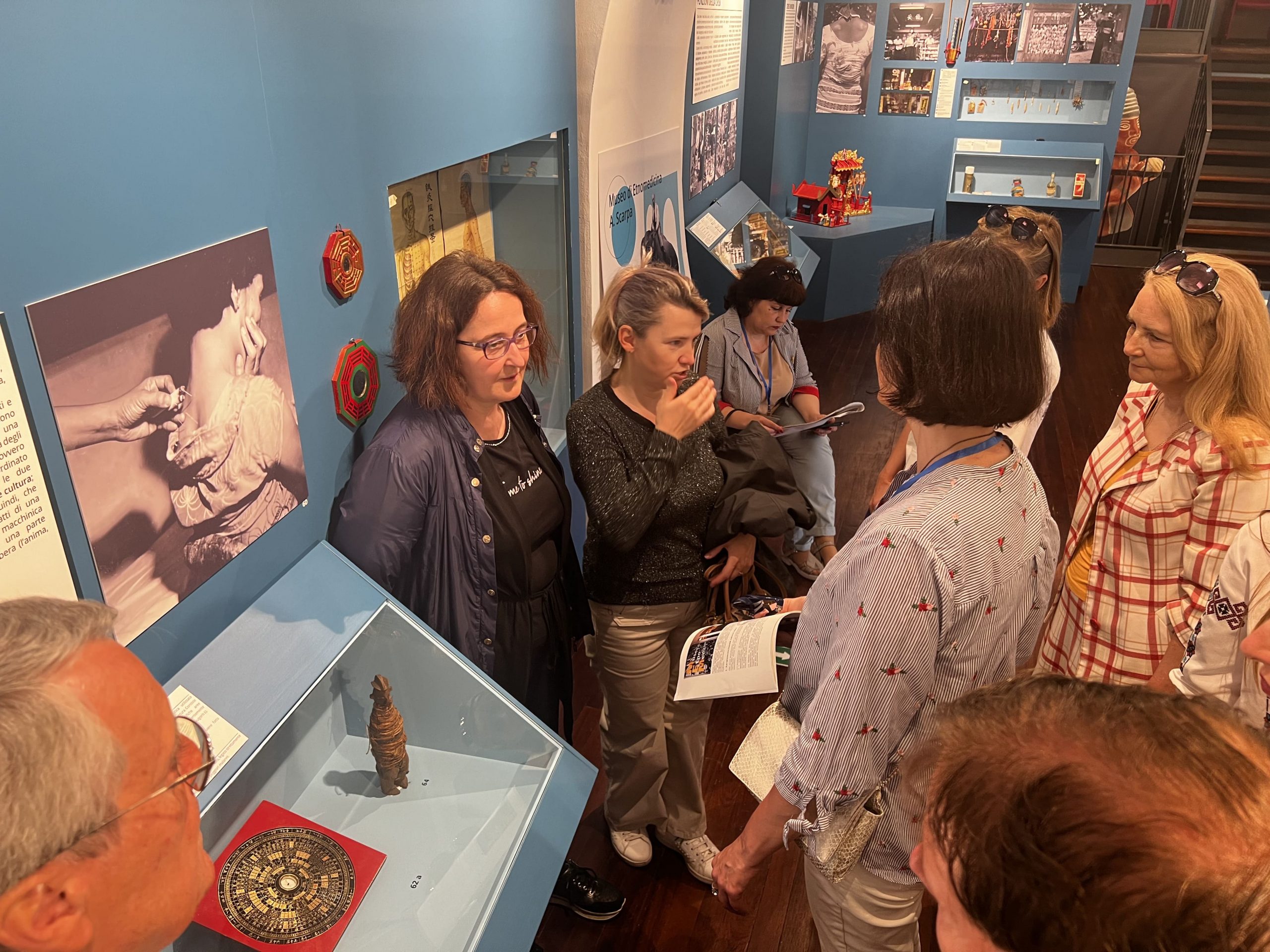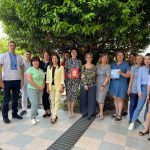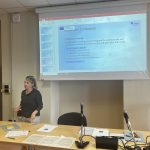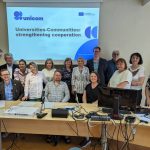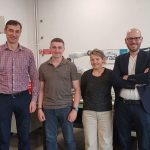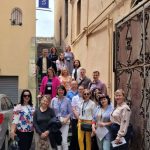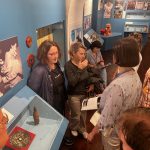Within the implementation of the ERASMUS +KA 2 CBHE project “Universities Communities: strengthening cooperation” (“Universities and local communities: strengthening cooperation”) UNICOM No. 101083077 ) an educational visit “Third Mission, What Steps and What Responsibilities: University of Genoa” has been held for representatives of universities – members of the consortium from May 26 to 31 at the University of Genoa (city of Genoa, Republic of Italy) where the Donetsk State University of Internal Affairs was represented by the first vice-rector of the university, Yehor Nazymko, and the head of the international cooperation department of the university, Viktoria Moskalenko.
The participation in a meeting of higher education institutions’ heads and representatives of international cooperation departments for further planning of project implementation; discussion of the concept of setting up a Center for interaction with the community on the basis of member universities of the consortium, development of policy and methodology for assessing its further functioning; presentation to the organizers and participants of the event of the results regarding the completed tasks of the project – the university’s activities regarding the implementation and strengthening of the third mission was an urgent purpose of the visit.
Project manager Diana Spulber and Professor Guido Amoretti who addressed the participants with a welcome speech identified the main stages of project implementation and the results of the work carried out.
The participants discussed the algorithm and the main stages of the further implementation of the project, summarized the main criteria and quality guarantees of project implementation in communities, and also emphasized the procedure for developing a strategy for working in small groups during this event. In the course of the work the place of decentralization as one of the main goals of the strategy of strengthening the third mission has been singled out.
In her presentation the project manager Diana Spulber emphasized the importance of established cooperation with institutions that carried out educational activities in the field of general secondary education, which simplified the organization of courses for initial, as well as further training and retraining of teachers, conducting orientation meetings, Days or Weeks of open doors. In order to meet the needs of communities the teaching staff developed courses for military personnel and employees of professional associations, created and implemented a mechanism for protecting the right of convicts to education, organized cultural courses for the elderly, and established work in the international university Internet network “Scientists Under Threat”.
In her speech on the topic “Transfer of Technologies and Knowledge. Research Services, Technology Transfer and Direction of the Third Mission at the University of Genoa” Alesya Popia emphasizing the importance of internationalization within the general dimension of quality outlined three main directions of the university’s activity: education and training, research, and the third mission. The speaker noted that the university was an important scientific and cultural landmark and an intermediate link between local communities and a globalized society, since it was higher education institutions that contributed to social, cultural and economic development through the direct application, accumulation and use of knowledge, as well as through the initiative of continuous learning. The main tasks of the third mission are to promote the development of society through the transfer of knowledge and technologies to the social and industrial spheres, to increase the social and educational role of the university, to promote actions and development processes aimed at stability, inclusion, acquisition of entrepreneurial skills and active citizenship.
The purpose of Sara Cepolina’s presentation was to acquaint the consortium participants with learning technologies at the University of Genoa. The speaker said that the “Technology Transfer Office” (TTO) was created and adjusted at the university, whose activities were aimed at creating conditions and providing legal support for scientists and students who carry out entrepreneurial activities or need protection of intellectual property rights. With the help of the maximum convergence of research activity and its results with the needs of the economic market, ТТO contributes to the fact that such activity is useful not only from a scientific point of view, but also used for the development of the economy.
The main results of their activities within the scope of the project have been also presented by Oksana Holovko-Havrysheva, Tetyana Konovalenko, Yehor Nazymko, Viktoria Moskalenko, Olena Orzhel, Natalia Shofolova and Maria Nesterova, who presented the results of the project’s first work package, focused on the process of creating Centers for interaction with the community, emphasized the systematization of practices of European and national universities regarding interaction with communities.
According to the results of the event, the participants of the educational visit unanimously supported the idea of involving all employees of the university community into the process of creating Centers of interaction with the community and approved the algorithm for the further implementation of the project.
